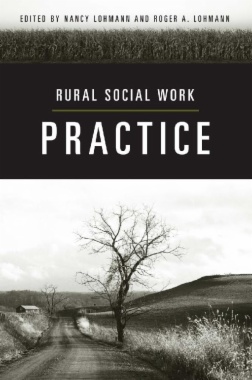Featuring contributions from practitioners, researchers, and academics, this volume synthesizes and analyzes current trends in rural social work practice and considers the most effective ways to serve rural communities. Contributors consider the history and development of rural social work from its beginnings to the present day, addressing the value of the Internet and other new information technologies in helping clients. They also examine the effects of nonprofit organizations and welfare reform on poor rural areas. Coverage of specific client populations and fields of practice includes services for rural mental healthcare; the chronically mentally ill; healthcare for minorities; and the challenges faced by the elderly in rural areas. The contributors also consider issues affecting gays and lesbians living in rural communities and the role of religiosity and social support in the well-being of HIV/AIDS clients. The book concludes with a consideration of the unique issues associated with educating social workers for rural practice.
- Table of Contents
- Introduction
- Part I. The Context of Practice
- 1. Social Work in Rural America:
Lessons from the Past and Trends for the Future
- 2. Rural Poverty and Welfare Reform:
Challenges and Opportunities
- 3. Wired for the Future? The Impact of Information and Telecommunications Technology
on Rural Social Work
- 4. The Distribution of Nonprofit Social Service Organizations along the
Rural-Urban Continuum
- 5. The Third Sector in Rural America
- Part II. Interventions
- 6. Dual Relationships in Rural Communities
- 7. Rural Community-Building Strategies
- 8. The Multiple Roles of a
Rural Administrator
- Phtot Insert
- Part III. Client Populations and Fields of Practice
- 9. Services for the Chronically
Mentally Ill in Rural Areas
- 10. Directions in Rural Mental
Health Practice
- 11. The Health of Rural Minorities
- 12. Gay Men and Lesbians in Rural Areas: Acknowledging, Valuing, and Empowering
This Stigmatized Invisible People
- 13. The Role of Religiousness/Spirituality and Social Support on Subjective Well-Being Among People Living with HIV/AIDS in
Rural Communities
- 14. Demographic Characteristics
of the Rural Elderly
- Part IV: Education for Practice
- 15. Social Work Education for Rural Practice
- Epilogue:
What Is Rural Practice?
- Contributors
- Index

